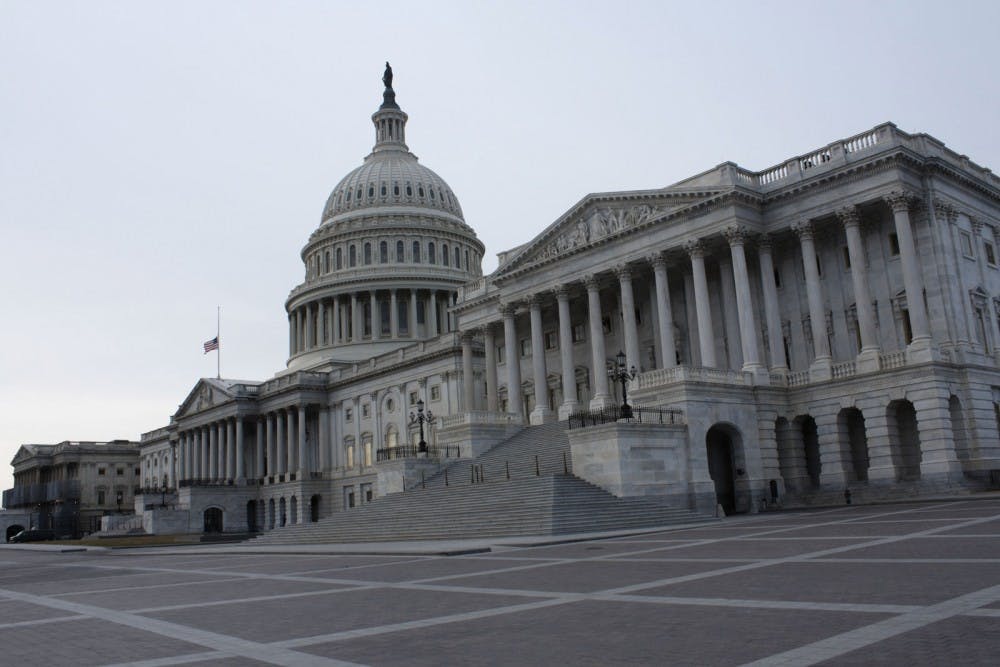Ball State may be more than 540 miles away from Washington, D.C., but the effects of a partial government shutdown may still affect students and faculty alike.
The shutdown, which began Dec. 22, 2018, started after Congress did not pass a budget that included President Donald Trump’s request for $5.7 billion for the construction of a wall along the U.S.-Mexico border, according to an Associated Press report. As of Jan. 24, the current shutdown is the longest in the history of the United States at 34 days.
Among the most noticeable effects of the current shutdown is the lack of pay many federal workers face as their departments remain unfunded.
Ben Acker, a Ball State Journalism/TCOM major, knows the effects quite well. His father, James Acker, who works for NASA, specifically in the oceanography field, is among the affected employees. Acker’s father is currently working remotely with limited pay.
“It’s kind of a weird thing, because he’s usually not at home, especially over break, so it’s like, ‘Why aren’t you at work? Oh, yeah, that’s right, it’s because the government’s shutdown,’” Acker said. “It’s happened before, but this has obviously been the longest one.”
According to a report from the Senate Appropriations Committee, 420,000 federal employees will be required to work without pay to fulfill essential roles, while another 380,000 will be furloughed, or sent home on leave without pay.
Chad Kinsella, assistant professor of political science, said though this shutdown has had relatively minimal effects on students and the population at large, it could have serious consequences if it continues.
“Countries like China and Russia have been very quick to point out that their governments does not have shutdowns and use this to point out the flaws of democracy,” Kinsella said in an email.
In terms of college institutions like Free Application for Federal Student Aid (FAFSA), Ball State students might not be affected just yet.
John McPherson, assistant vice president for Enrollment Planning and Management and executive director of Financial Aid and Scholarships, said there was a brief time where students and parents could not get tax return transcripts from the IRS to complete income verification for FAFSA.
However, the U.S. Department of Education confirmed that copies of income tax returns can be accepted instead.
“We are currently revising our documentation to reflect this change. Our office coordinates all federal financial aid and at this point in time we have seen no interruption in funding and do not anticipate any future disruption,” McPherson said in an email.
Trump has met several times with House Speaker Nancy Pelosi (D-Calif.) and Senate Minority Leader Chuck Schumer (D-N.Y.), with little agreement, including a brief encounter in which the president walked out of the room when the Democratic leaders said they would not fund the wall, according to an Associated Press report.
Trump addressed the nation Jan. 8 from the Oval Office, doubling down on his platform that a border wall is necessary and expressed no interest in opening the government until funding for the wall was secured.
“There have been government shutdowns before and, unfortunately, it is becoming more common in our polarized era,” Kinsella said. “The shutdown is doing everything from slowing down government, increasing cynicism and eroding confidence in government, and is not good for our democracy.”
Contact John Lynch with comments at jplynch@bsu.edu.





